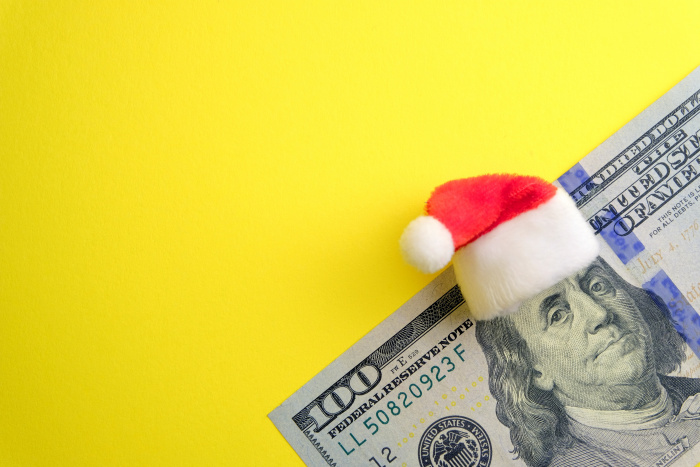Are you haunted by the debt of holidays past? Try these tips to pay it all off sooner.
Around 35 percent of Americans took on holiday debt in 2023. They borrowed an average of $1,549, the highest amount since 2015, according recent survey. One in three of the respondents say the soonest they can pay off holiday debt will be five months from now. So, if your holiday spending is making your financial life harder in the new year, you’re not alone. But there are steps you can take to pay off that debt faster. Paying off holiday debt may take some short-term sacrifice, but you’ll benefit greatly in the long run. You’ll probably get a better night’s sleep without financial woes weighing you down. Ready to get started tackling pesky holiday debt so you spend money on other things and save for emergencies and large purchases? Here are five tips for kicking holiday debt out of your life in 2024.
1. Sell stuff online
If you want to stay out of holiday debt, create a budget with a strict limit of how much you want to spend for holiday gifts — then stick to it. If you start getting carried away and feel that you can’t control your online or in-store holiday spending, close the laptop or phone screen or walk out of the big-box store before the next holiday song blasting makes you spend even more. Chances are you’ve got furniture, tools, lamps, bikes, and other items gathering dust in the basement or garage. Get started on your spring cleaning early by selling these items on Facebook Marketplace, eBay, or another online venue. Even if you only bring a few hundred dollars, that can knock out a good chunk of credit debt if you apply the cash directly to a credit card payment. You may even surprise yourself and accumulate enough cash from sold items alone to pay off the debt completely.
2. Scrounge up extra income
There’s nothing like earning more cash so you can pay off holiday debt sooner. Take on a short-term side hustle or ask your boss if you can earn overtime at work. Then apply the earnings to holiday debt. When all is said and done, you can return to your usual schedule, or even better, work extra hours for a couple more months to save ahead for next holiday season.
3. Transfer debt to a balance transfer card
If you got carried away and racked up more holiday debt on a high-interest credit card than you can pay off in a few months, consider transferring the balance to a new card with an introductory 0 percent APR for a year or 18 months. Then pay enough each month to get to a zero balance before the 0 percent APR expires. You’ll pay a balance transfer fee of around 3 to 5 percent of the transferred balance, so first, make sure that fee won’t exceed what you’d pay in interest on the old card. Stay away from making new purchases on the new card. Then hammer away at that debt until it’s gone. Important: Make sure you never pay late, since late payments can nix the 0 percent deal and stick you with a high interest rate and more debt woes.
4. Prepare most meals at home
In 2023, Americans spent an average of $2,375 annually on dining out, according to credit and financial resources. That amount comes to nearly $200 monthly, in addition to weekly groceries. If you cut back on dining out, prepare most meals at home, and take your lunch to work a few times a week, you can apply your savings to holiday credit card debt. Sure, it’s a sacrifice, but one that’s well worth the effort — especially since dining out would probably add even more debt to the credit card balance you’re trying to eliminate. You may appreciate having extra money so much that you continue mainly eating at home so you can save for large purchases and major goals like buying a house, going back to school, or starting a family.
5. Go on a spending fast
A “spending fast” may sound extreme, but it’s mainly just living within your means. Right now, you can’t afford your usual lifestyle if you want to pay off holiday debt and save money on credit card interest. So, vow to cut back for a couple months on expenses and then apply your savings to holiday credit card debt. Your spending fast may include pausing all but one streaming channel, preparing most meals at home, planning errands so you use less gas, and adjusting utility usage for lower bills. It might mean you shop only at discount grocers and don’t buy new clothes for a month or two. Start out small, committing to a month-long spending fast. Once you’ve got the hang of it, you might add another month or two, saving plenty of money to go towards holiday debt.


